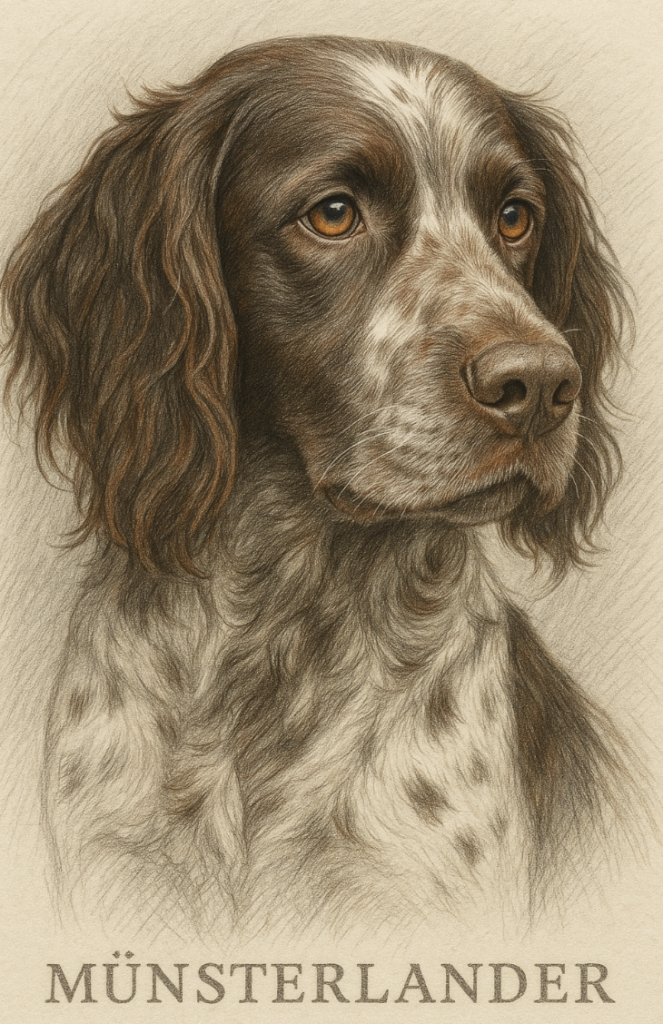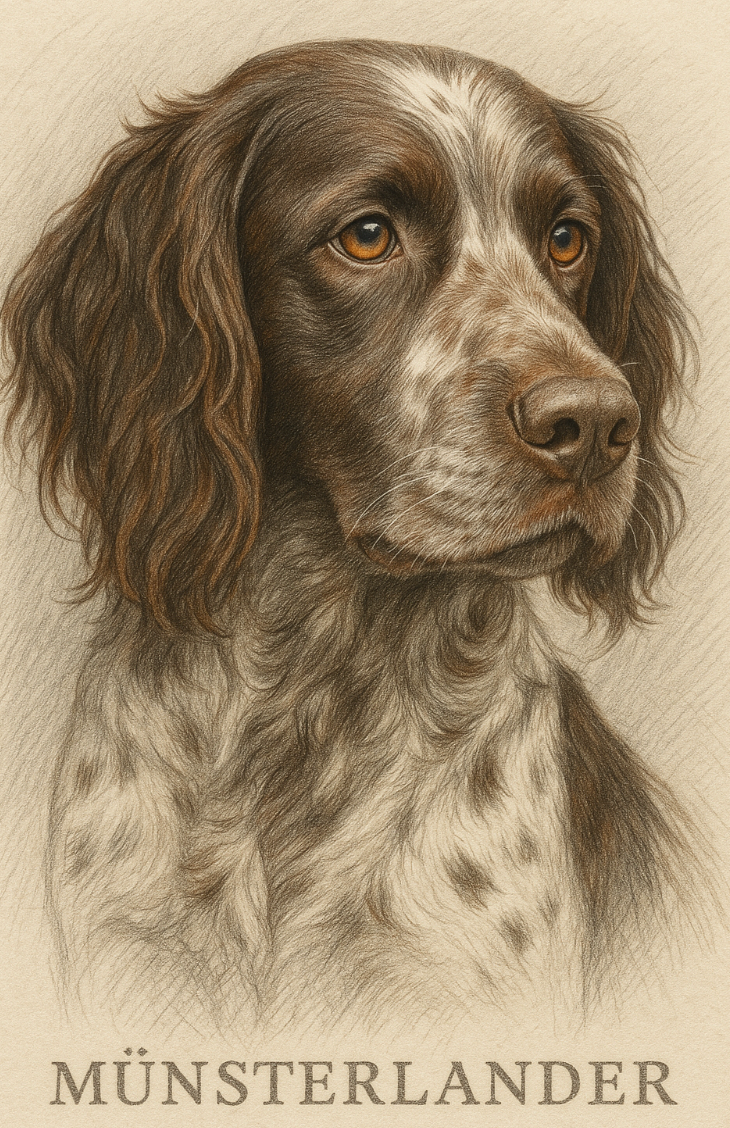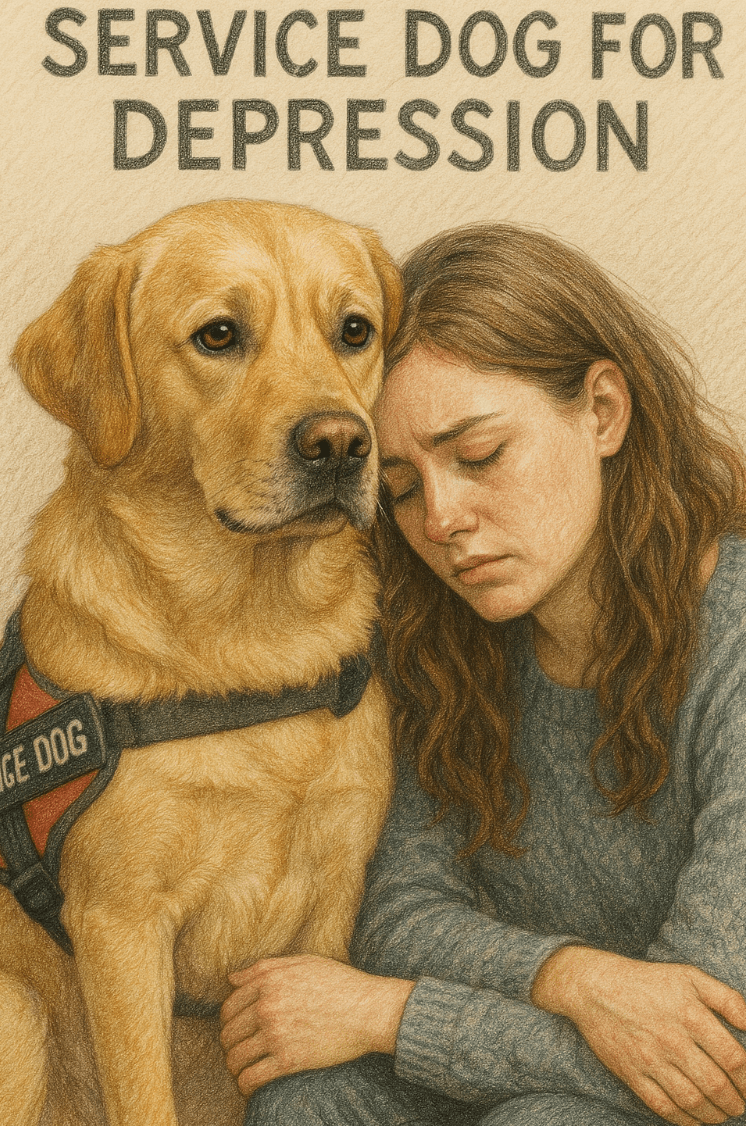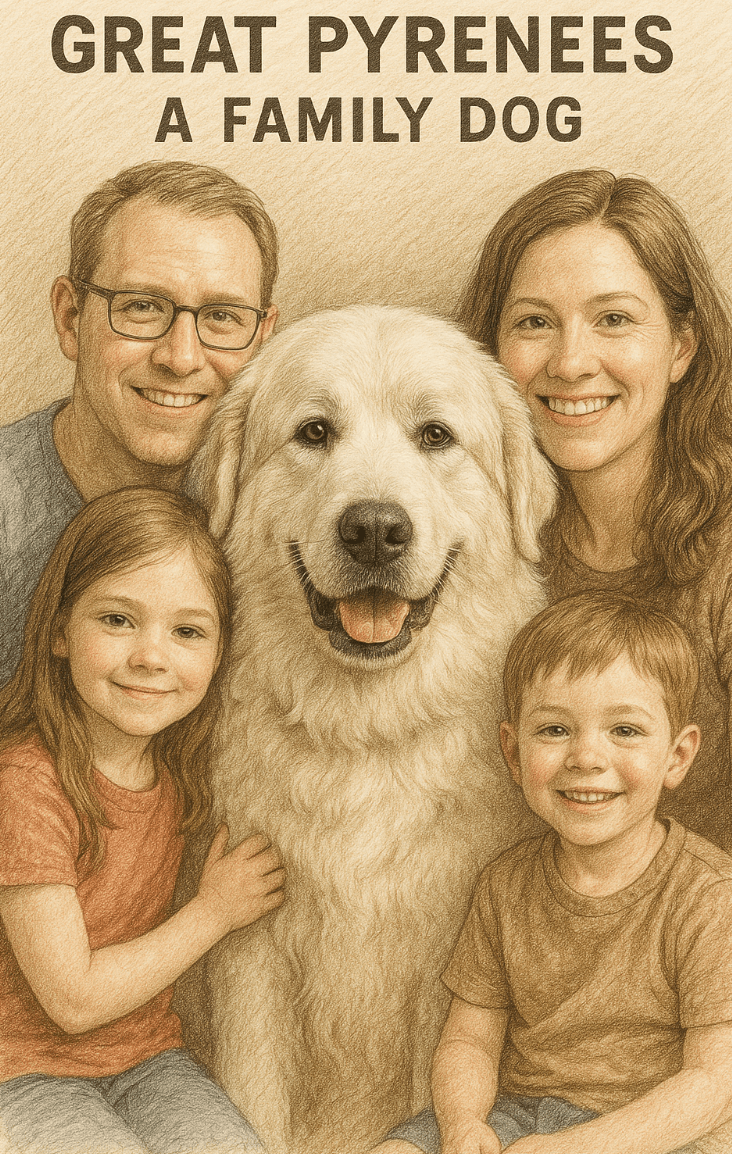Munsterlander Dog: The Versatile and Loyal Companion
The Munsterlander dog, known for its striking appearance and exceptional versatility, is a breed that captures the hearts of hunters, families, and outdoor enthusiasts alike. Originating from Germany, this intelligent and energetic breed comes in two variations: the Small Munsterlander and the Large Munsterlander. Both types share a strong hunting instinct, friendly temperament, and a natural affinity for working closely with their human companions.
Whether you’re an avid outdoorsperson or simply looking for a loyal and active pet, the Munsterlander dog might just be the perfect match. In this blog post, we’ll explore everything you need to know about this remarkable breed, from their history and characteristics to tips for raising a happy and healthy Munsterlander.
Key Characteristics of the Munsterlander Dog
The Munsterlander dog is celebrated for its unique combination of traits that make it both a skilled working dog and a loving family companion. Here’s a closer look at what sets this breed apart.
Intelligent and Trainable:
Munsterlanders are quick learners, excelling in obedience training and complex tasks. Their eagerness to please makes them highly responsive to commands.Strong Hunting Instincts:
Bred as versatile gundogs, they are adept at tracking, pointing, and retrieving game, making them ideal for hunting enthusiasts.Friendly and Social Nature:
Known for their affectionate demeanor, Munsterlanders thrive on human interaction and are great with children and other pets.High Energy Levels:
These dogs require plenty of physical activity and mental stimulation to stay content and well-behaved.Distinctive Appearance:
With their sleek coats, feathered tails, and expressive eyes, Munsterlanders are as beautiful as they are talented.
These qualities make the Munsterlander a standout breed for those seeking a multifaceted and devoted canine partner.
Physical Traits of the Munsterlander Dog
The Munsterlander dog’s elegant and athletic build reflects its role as a hardworking gundog. Understanding their physical attributes helps you appreciate their unique charm and capabilities.
Size and Build:
The Small Munsterlander stands 18-20 inches tall and weighs 35-50 pounds, while the Large Munsterlander is slightly bigger, standing 23-25 inches tall and weighing 50-70 pounds.Coat and Colors:
Both varieties have dense, weather-resistant coats, typically white with black or brown markings, providing excellent camouflage in the field.Feathered Fur:
Their long, flowing feathers on the ears, legs, and tail add to their graceful appearance and protect them during outdoor activities.Expressive Eyes:
Dark, alert eyes convey intelligence and warmth, reflecting their attentive and intuitive nature.Athletic Stamina:
Built for endurance, Munsterlanders can cover long distances without tiring, making them ideal for active lifestyles.
Their physical traits not only enhance their functionality but also contribute to their undeniable beauty.
Check this guide 👉Akita Shepherd Dog: Best 7 Expert Tips!
Check this guide 👉Bernese Mountain Dog Poodle Mix: Best 7 Expert Tips!
Check this guide 👉Golden Mountain Bernese Dog Price: Best 7 Expert Tips!

Pros of Owning a Munsterlander Dog | Cons of Owning a Munsterlander Dog |
|---|---|
Highly trainable and intelligent | Requires significant exercise and attention |
Excellent family and hunting companion | Not ideal for small apartments |
Friendly and social temperament | Can become anxious if left alone |
Low grooming needs with regular care | Prone to separation anxiety |
Long lifespan (12-14 years) | Needs experienced handling for training |
Training Tips for Your Munsterlander Dog
Training is essential to harness the full potential of your Munsterlander dog. Their intelligence and enthusiasm make them a joy to work with, but consistency is key to success.
Start Early:
Begin training and socialization as a puppy to establish good habits and prevent behavioral issues later in life.Use Positive Reinforcement:
Reward-based methods, such as treats, praise, and playtime, motivate this eager-to-please breed effectively.Incorporate Mental Challenges:
Engage their sharp minds with puzzle toys, scent games, and advanced commands to keep them mentally stimulated.Focus on Obedience Training:
Teach basic commands like “sit,” “stay,” and “come” to ensure they respond reliably in various situations.Include Field Training:
If you’re a hunter, introduce them to tracking, pointing, and retrieving exercises to hone their natural instincts.
With patience and dedication, training becomes a rewarding experience that strengthens your bond with your Munsterlander.
Exercise Needs of the Munsterlander Dog
As a high-energy breed, the Munsterlander dog thrives on physical activity and outdoor adventures. Meeting their exercise requirements is crucial for their happiness and behavior at home.
Daily Walks and Runs:
Aim for at least 1-2 hours of vigorous exercise daily, including brisk walks, runs, or hikes.Hunting and Fieldwork:
Engage them in activities that mimic their natural instincts, such as retrieving or tracking scents.Interactive Playtime:
Games like fetch, frisbee, and tug-of-war provide both physical exertion and bonding opportunities.Agility Training:
Set up obstacle courses to channel their athleticism and focus while keeping them entertained.Supervision During Outdoor Time:
Avoid leaving them unsupervised in open spaces, as their prey drive may lead them to chase after wildlife.
Providing ample exercise ensures a calm, content, and well-adjusted companion indoors.
Common Misconceptions About the Munsterlander Dog
Despite their popularity among hunters and families, several misconceptions surround the Munsterlander dog. Clarifying these myths helps set realistic expectations for potential owners.
They Are Only Suitable for Hunters:
While bred for hunting, their friendly nature makes them excellent family pets too.They Don’t Need Much Attention:
On the contrary, they thrive on human interaction and suffer from separation anxiety if neglected.All Munsterlanders Look the Same:
Physical traits can vary between the Small and Large Munsterlander, as well as individual genetic differences.They’re Easy to Train Without Effort:
Though intelligent, they still require consistent training and patience to reach their full potential.They’re Low-Maintenance Dogs:
Their high energy levels and grooming needs mean they require significant time and effort to care for properly.
Dispelling these myths ensures a deeper understanding of this incredible breed.
Health Considerations for the Munsterlander Dog
Like all breeds, the Munsterlander dog is prone to certain health issues. Being aware of these risks allows you to take preventive measures and ensure a longer, healthier life for your pet.
Hip Dysplasia:
A common condition in active breeds; maintaining a healthy weight and avoiding excessive strain on joints helps reduce risk.Ear Infections:
Their long, feathered ears can trap moisture; regular cleaning prevents infections.Allergies:
Some Munsterlanders may develop skin or food allergies; hypoallergenic diets and vet consultations help manage symptoms.Bloat (Gastric Torsion):
Rapid eating and stress increase the likelihood of bloat; feeding smaller meals and using slow-feed bowls helps mitigate this.Eye Disorders:
Progressive retinal atrophy (PRA) can occur; routine eye exams help detect problems early.
Proactive healthcare ensures a longer, healthier life for your beloved pet.
Fun Activities to Enjoy with Your Munsterlander Dog
Living with a Munsterlander means embracing an active lifestyle. These fun activities will strengthen your bond while keeping them physically and mentally stimulated.
Canine Sports:
Participate in competitions like agility, flyball, or tracking to showcase their skills and boost confidence.Long Hikes in Nature:
Explore trails together, allowing them to sniff, run, and burn off excess energy in a natural setting.Swimming Sessions:
Many Munsterlanders enjoy water; swimming provides excellent low-impact exercise.Obedience Challenges:
Create mini obstacle courses at home or practice advanced tricks to sharpen their focus and discipline.Interactive Toys:
Puzzle feeders, treat-dispensing balls, and chew toys keep them entertained when you’re busy.
Engaging in these activities ensures a fulfilling life for your adventurous companion.
Frequently Asked Questions About the Munsterlander Dog
Is the Munsterlander dog good with kids?
Yes, their friendly and patient nature makes them excellent companions for families with children.
Do they get along with other pets?
With proper socialization, they can coexist peacefully with other dogs and even cats.
How much grooming do they need?
Regular brushing and occasional baths are sufficient to maintain their coat and reduce shedding.
Are they suitable for apartment living?
While possible, their high energy levels and need for space make them better suited for homes with yards.
What health issues should I watch for?
Potential concerns include hip dysplasia, ear infections, and allergies; regular vet check-ups are recommended.
Embracing Life with a Munsterlander Dog
The Munsterlander dog is a remarkable blend of beauty, brains, and brawn, making them an exceptional choice for active individuals and families. Their loyalty, versatility, and affectionate nature create a bond that’s truly special. However, owning a Munsterlander requires commitment, particularly when it comes to their exercise, training, and social needs. By understanding and meeting these requirements, you’ll be rewarded with a devoted companion who brings joy, adventure, and endless love into your life. If you’re ready for the challenge, the Munsterlander dog could be your ultimate furry best friend.
Omega Benefits Canine: Best 7 Expert Tips! Discover how omega fatty acids boost your dog’s health, from skin and coat to joints and immunity, with expert advice for optimal canine wellness.
Service Dog for Depression: Best 7 Expert Tips! Discover how service dogs provide emotional support, perform vital tasks, and improve mental health for individuals managing depression.
Is a Great Pyrenees a Family Dog? Best 7 Expert Tips! Discover expert advice on temperament, care, and training to determine if this gentle giant is the perfect family companion for your home.
Munsterlander Dog: Best 7 Expert Tips! Discover expert advice on training, care, and living with this intelligent, energetic breed for a happy and healthy companion.




